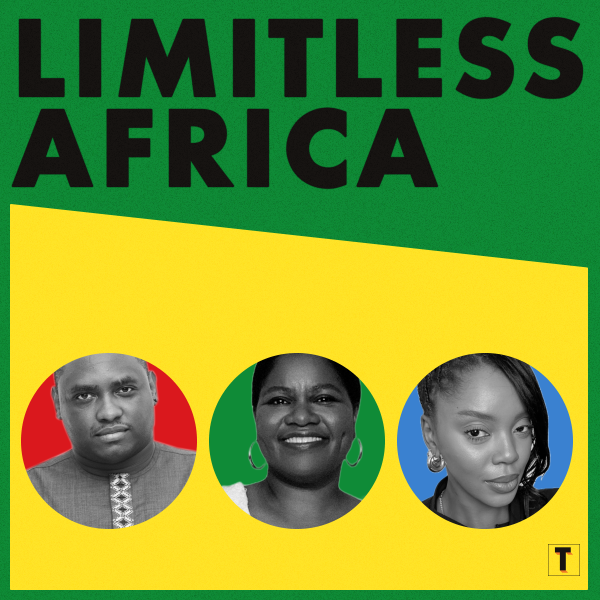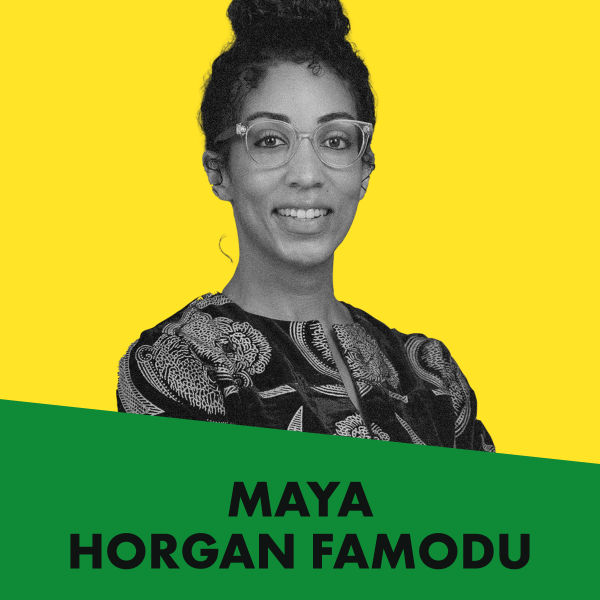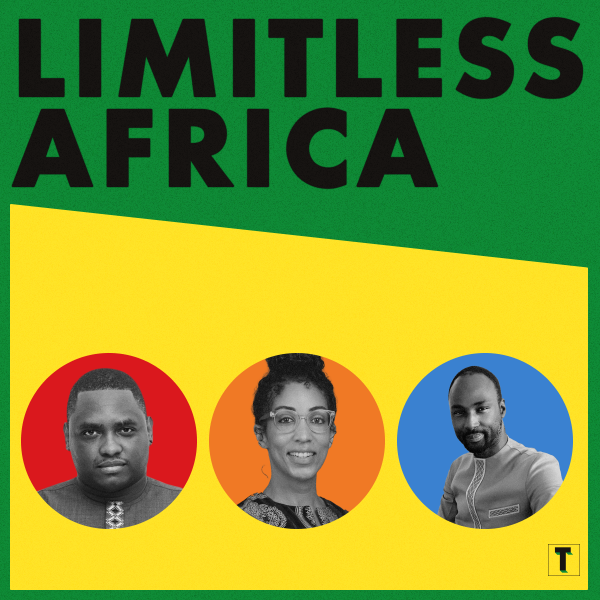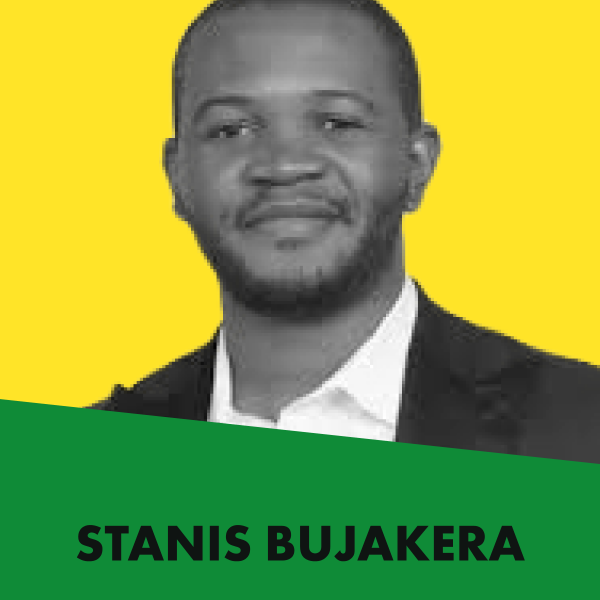How can African fashion become a global leader?
With guests Angela Brito, Katlego Tefu, Moulaye Taboure

Episode notes
The fashion industry could increase the continent’s prosperity by 25 per cent. Claude Grunitzky asks how can African fashion become a global leader?
Transcript
Claude: In this episode we’re talking fashion
Last year, the United Nations hailed Africa as a future world leader in their first report on the state of fashion in Africa. The data was promising. The UN estimated that the fashion industry alone could increase the continent’s prosperity by 25 per cent.
In this episode, I wanted to look at how varied the opportunities in African fashion are. We spoke to a social media influencer, a fashion designer and an online retail entrepreneur.
Let’s hear from Angela Brito, a de...
Claude: In this episode we’re talking fashion
Last year, the United Nations hailed Africa as a future world leader in their first report on the state of fashion in Africa. The data was promising. The UN estimated that the fashion industry alone could increase the continent’s prosperity by 25 per cent.
In this episode, I wanted to look at how varied the opportunities in African fashion are. We spoke to a social media influencer, a fashion designer and an online retail entrepreneur.
Let’s hear from Angela Brito, a designer from Cape Verde. Her designs are sophisticated, beautifully cut and striking. Here is her conversation with our Lusophone presenter Simone Spencer.
Simone: Hi Angela, I’d like you to tell us a bit about how you got here and where you are now?
Angela: This year my brand will be 10 years old, and I look back… it’s incredible that you say that because today I woke up thinking about it.
For me, working with fashion from Cape Verde was already a bonus, it was already a dream.
So when I opened the brand ten years ago, the idea was really to put my ideas and what I believe in the industry out there. I wanted my ideas to come out of my head and materialize.
I’ve been very blessed in my journey. I remember on the first collection, on the first day of the launch of the first collection, someone came into the studio and said: ‘people need to see this’. And the next week or two weeks later I was on a whole page of Globo’s ‘Ela’ section with the headline ‘she came from Cape Verde’. And that was in 2014.
Simone: Can you talk a little about your identity, the identity of your brand?
Angela: I don’t try to fit in anywhere or in any aesthetic, or in any… I don’t try, I try to be me, and whoever likes it, likes it.
Not only our Cape Verdean African aesthetic, this identity of mine, it wasn’t there in the industry because it wasn’t something that was considered cool, hip, sophisticated, etc. It wasn’t culturally valued either.
I knew it had to be about this culture of mine, this Angela Brito culture of ours, who I was, my aesthetic identity as a phenotype, as a black woman, as a black culture, as a Cape Verdean culture, in short.
Simone: What do you think? Do you think African fashion can conquer the world? If so, how?
Angela: I’m not really in favor of talking about ‘African fashion’ as a whole, because we are very diverse within the continent. I think that what makes it happen, what is driving change within the fashion industry today, is that fashion has finally begun to value and understand that the difference lies in the culture that each designer brings.
We’ve experienced a different view for decades and decades: fashion that was completely focused on one, on one look. In the beginning, people weren’t used to it, there had never been a black designer like me. So when they went into the studio and asked for Angela Brito, for example, they never thought it was me. When they saw the clothes they’d say: wow, but it’s so minimalist… where are the vibrant African colours? It’s so sophisticated, did you make it yourself?
So, yes, this is a 10-year work that I’ve managed to do, for people to understand, to understand me as an individual and from the beginning that was my idea, that people understand that above anything, culture, race, gender, I’m an individual.
And as an individual I will create within my individuality and according to what I believe in.
Claude: Moulaye Taboure is the founder of Anka, an online sales platform for African fashion and crafts based in the Côte d’Ivoire. The company has raised $6.2 million in its series A funding. Here’s our conversation.
I’m thinking specifically now about this Africa fashion show that was this big exhibition at the Brooklyn Museum here in New York last year, which was a big hit. 1000s of people went to see that exhibition. I heard people talk about how Africa could become a force in the global fashion industry. Do you think this is possible?
Moulaye: Yes, 100% that’s our mission, actually. So we really believe that fashion is the number one thing Africa can export. All cultural things are Africa biggest assets, because it’s endless, contrary to what is under our soil, these things we keep creating, and we are lucky as the black diaspora to have the largest one in the world, and very interesting one, also, because culture is something that you can endlessly improve on, and that you can export from places where there are very little resources, like Nigeria and very, very often issues of currencies and stability, to places like the US, where there is a real need to show heritage, to valorize the culture and then transmit that into actual purchases. So definitely, there is an opportunity. It will require a common effort. Consider the effort of all parties. We believe that, for example, there is a big opportunity for these brands to go together to the markets they need to meet. That’s why we organise a growth club this year with the USAID and cross boundary, and that we are going to organise pop up shops all over the US this summer to actually bring these sellers to the market. But then afterwards, it’s also about sustainability and consistency all over the world, like all entrepreneurship.
Claude: You are often dressed with African clothes. Yes, I can see that right now you’re dressed with African clothes. Can you tell us about some of your favourite African designers and even some of the ones that you see as having the potential to actually blow up from a business perspective?
Moulaye: Sure. So for me, one of my favourite brands that I’m wearing today is Africana Couture. So for the men’s is a must have, a Nigerian brand, sold online on africa.com obviously, but also have shops in few African countries.
Claude: Once again, Nigeria, not always Nigeria, whether it’s music or film or fashion, it’s Nigeria.
Moulaye: They are there but If you want a brand that is Ivorian and that does a lot of the clothing I wear is Ibrahim Ferndandez. This is a brand that you can find on Instagram and on our platform that does amazing clothing that I wear often out of Ivory coast.
I can give you an example of a brand in Zambia called Mangishi Love that I personally love a lot, even though they only do I might say women clothing, so I kind of offer that a lot to the women around me.
But you have brands like also in the US, like ÖFUURË, D’IYANU, and if you are for the very unique pieces, you need to get your hands into some La Falaise Dion that has incredible jewellery with very important spiritual meanings, or simply brands like Nana Wax, that is a ready to wear brand that you can wear pretty much all around Africa, that is still to this day has been worn by Lupita Nyong’o, by all other celebrities in the US.
Claude: So what is the strongest market for African fashion? I’m imagining the answer is the US market. But tell us which really is the strongest market? Tell us about that.
Moulaye: Yeah, so for us, yes, the US market is the strongest one. To give you an example, in the white report we shared that the average basket in the US and Caribbean customers also is 50% higher than the ones of European countries.
Claude: Katlego Tefu is a social media fashion and beauty influencer based in South Africa. She spoke to our journalist, Dimpho Lekgeu.
Dimpho: Now over the past couple of years, we have seen the emergence of a lot of South African and African fashion designers take the global stage. Case in point would be the likes of Maxhosa as well as Thebe Magugu. How would you compare the South African fashion scene to what’s happening in other places in the world?
Katlego: Honestly, I don’t really think there’s a comparison for me personally. I think maybe it’s because I’m biassed, or I just relate so much better with the themes and the designs and the backstories of the fashion in Africa, like if they’re talking about this is what we used to wear in the 50s. I think my mother, my grandmother, you know, so it resonates with me more than international fashion.
But I do think that we have a lot of great fashion in Africa, and it’s been such a pleasure recently to see it be able to be seen on a global stage. I think social media has been so great for that. And, yeah, yeah.
Dimpho: And speaking of social media, because you are someone who has quite a presence on various platforms, what role do you think social media has played in advancing and showcasing African fashion?
Katlego: I think social media has been really great at just being making the designers and these fashions visible for people.
Social media has been monumental for me I didn’t grow up in these spaces. I am not really privy to these spaces, you know. So I get a glimpse of these spaces through social media, and I know that the world gets a glimpse of Africa through social media.
And I think the fashions that have been portrayed and just placed on the world stage have been really, really amazing. I mean, with the Thebe, I think was he invited? I’m not invited, but I think some of his clothes have were shown at this year’s Met. So, you know, social media has been great. Social media has been great. I don’t, I don’t think I would have known some of the designers that I do, or some of the brands that I do, if it wasn’t for social media. And I know that there’s so many more people who feel that way.
Dimpho: Yeah, and I know you said earlier on that you really think that there’s no competition for African fashion, or that African fashion is on a league of its own, but the reality is that we’re still seeing a lot more European brands, especially on the bigger fashion stages. So what do you think it’s going to take for African fashion to become more globally renowned? And also, how can we use social media and the voices of people such as yourself to get to that point?
Katlego: Honestly, I think that is a really layered question, because we are a third world country, and, you know, a large part of Africa’s Third World, okay, it’s difficult for industries to exist without infrastructure and support. It’s difficult for businesses to exist without infrastructure and support. You may even have support, but if you don’t have the infrastructure, if you’re constantly getting load shaded, if you’re constantly having to do this and that because of the lack of infrastructure in your area, it affects your business. So I think the only way for us to be able to compete on a global scale is for support to happen and for infrastructure to be built for this entry, for this industry to exist, you know, and I feel like the governments are probably gonna have to lend a helping hand here. But until then, you know, I don’t know.
Dimpho: Thank you so much for that honest reflection Katlego and I think it’s important to mention that the structural support to grow industries is necessary. It’s been an absolute pleasure to have you on the podcast.
Claude: Thank you to all our guests. African fashion is a way to share and celebrate our African stories and our African identities. As consumers, we have to support local designers. And we have to demand that our governments provide better infrastructure to help African creativity thrive.
Listen next
"It wasn't just an overnight thing. Seeds were planted."
With guests: Maya Horgan Famodu
LISTEN NOW 55 min
How did I make my first million?
With guests: Maya Horgan Famodu, Moulaye Taboure, Moutagna Keita
LISTEN NOW 15 min








